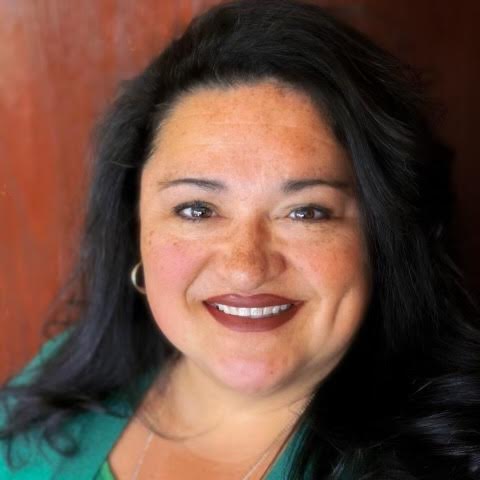Spyglass Spotlight #3 | The Interview: techniques, top tips, and thought process

In part 1, we delivered a broad overview of some of the concepts to keep in mind as you build your team in general. In part 2, we dug into some of the specifics of recruitment and how to approach that with a championship mindset. In this part, we’re going to discuss a crucial and often overlooked element of the hiring process: conducting the interview itself.
First things first, before you can sit down for the interview, you have to understand what you’re looking for in a candidate for the available role. Hiring an optician, a technician, a biller, or someone for the front desk each come with different requirements in general and for your office in particular. Maybe you need an optician, but your patient base skews younger and the prescriptions are fairly simple, so a highly experienced optician (and the commensurate salary that comes along) might be overkill for your needs at this moment.
We covered much of the prep work that goes into setting role expectations in our previous issue, have a look at it here.
When preparing to interview candidates, it may be helpful to think of this process as charting a map to your destination. There are many routes you can take, and all leading (hopefully) to the same destination; however, how you approach the path is going to depend on preparation. If you’re concerned with the fastest way to get there, or which route is going to allow you to get the most out of the trip with the least amount of challenges, then you have to prepare yourself and know the terrain ahead of you.
The interview
Prepare for the interview
Before conducting an interview, make sure you prepare a list of questions that will help you learn more about the candidate. Review the candidate's resume, cover letter, and any other materials they submitted to identify any areas of interest or concern. Familiarize yourself with the candidate's experience, education, and background.
Conduct a structured interview
A structured interview is a standardized interview that asks all candidates the same set of questions. This approach can help you evaluate the candidates more objectively and reduce the influence of personal biases. You can use a structured interview to assess the candidate's technical skills, work experience, and personal attributes.
Ask behavioral interview questions
Behavioral interview questions are designed to elicit specific examples of how a candidate has behaved in the past. These types of questions are helpful in evaluating a candidate's potential job performance. For example, you can ask a candidate to describe a time when they had to deal with a difficult patient or a challenging work situation.
Use a rating scale
If you use a rating scale to evaluate a candidate's responses to interview questions or to rate their qualifications based on your hiring criteria which can help you evaluate candidates in a more objective and consistent manner.
Conduct multiple interviews
Conduct an initial phone interview to capture an assessment if you want to move forward with each applicant. The initial call will help you gauge the candidate and possibly offer some insight on the individual with small talk. Sometimes small talk can lead to getting to know a little more about their personality, attitude and if there is a personal connection. Additionally, you can involve other team members in the interview process to get their perspective on the candidate.
Evaluate soft skills
Communication, teamwork, and problem-solving are important in every industry and can be especially vital in eye care because of how closely knit and interdependent many teams have to be to succeed. During the interview, evaluate the candidate's soft skills by asking questions about their work style, their ability to work with a team, and how they handle challenging situations.
Ask follow-up questions
Your goal should be to gain actionable information from the candidate's responses. For example, if a candidate describes a situation where they had to resolve a difficult patient issue, you can ask them to describe in more detail how they approached the situation and what steps they took to resolve the issue. Asking for details and specificity teaches you both the kinds of problems they’ve addressed in their careers and how well they’re able to articulate the resolutions.
Keep notes of each phone interview and document what you like about each candidate. These notes will be a resource to have on hand when conducting your in-person interview. What was your early impression? Are they well spoken?
Be creative with the in-person interview by offering a broad understanding of the culture in the office. Conduct an in-person sit down interview, give a tour of the office, introduce the team, and ask the candidates to shadow each department. Ask each department lead or manager to have a conversation with the candidate and ask professional questions.
Allowing candidates to see how the office is managed, how the team collaborates and a comprehensive view will acquaint them with who you are and what to expect.
In addition to the techniques mentioned above, there are other methods of evaluating a potential hire that can provide valuable insight into their personality traits, skills, and abilities. Here are some examples:
Post interview options
Personality tests
Those designed to assess a candidate's personality traits will help determine whether they are a good fit for the job and the company culture. There are various types of personality tests, including the Myers-Briggs Type Indicator (MBTI), the DISC Assessment, and the Big Five Personality Traits test.
Cognitive aptitude tests
These are used to assess a candidate's ability to learn and apply new information, solve problems, and make decisions. Some can measure a candidate's reasoning, logic, and critical thinking skills. (for example: Wonderlic test, Watson-Glaser Critical Thinking Appraisal)
Job knowledge tests
These should assess a candidate's knowledge and understanding of the job and the industry. These tests measure a candidate's technical skills, industry knowledge, and expertise.
Work sample tests
Think about how you might simulate tasks or projects that a candidate would perform on the job. These tests would assess a candidate's skills, abilities, and performance in a real-world context. These should be customized to the specific job requirements and may include tasks such as adjusting eyewear, neutralizing lenses, demonstrating patient work-up proficiency, and so on.
When using any of these methods, it is important to ensure that the test is valid, reliable, and relevant to the job requirements; it’s just as important to inform the candidate about the test in advance to make sure they understand what is being assessed and why.
Next Steps
After completion of the one-on-one interview, office tour, shadowing it’s time to reconnect and offer an opportunity for the candidate to ask questions and offer feedback. Circling back will give you the discretion to assess the candidate further by asking additional questions.
Now that you’ve completed the interview process you want to give a clear understanding of next steps. Offering candidates a time frame when you will make a decision is ideal.
Time to gather your notes, assessment results, team thoughts, and list favorable traits and any discrepancies. Consider if any discrepancies found can be disregarded or can be revised. Focus on the favorable traits and the interaction with the team.
As a final thought, keep in mind that industry knowledge can be taught, experience can be gained over time, but you cannot teach personality. Those candidates that fit culturally should be considered favorably, even if their onboarding may take longer; the medium and long term benefits to your practice are incalculable.



